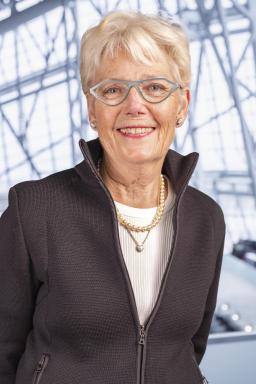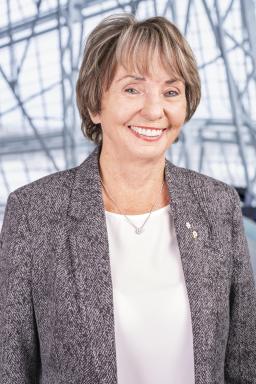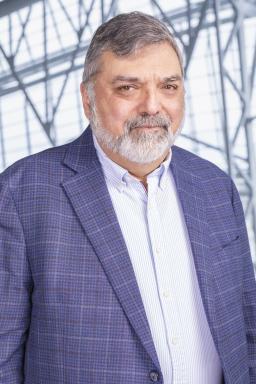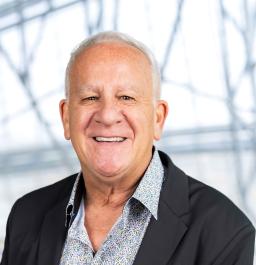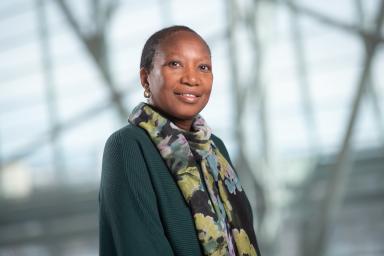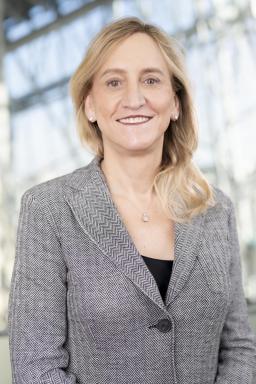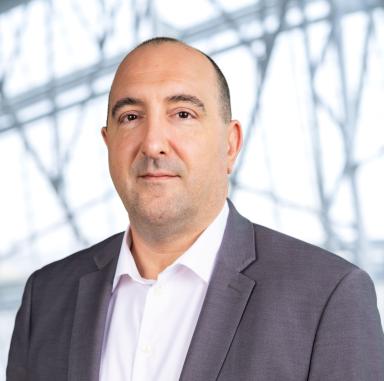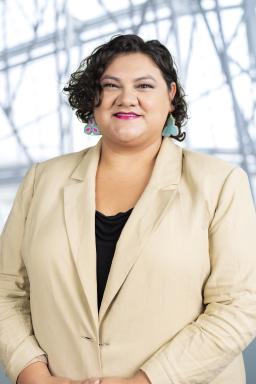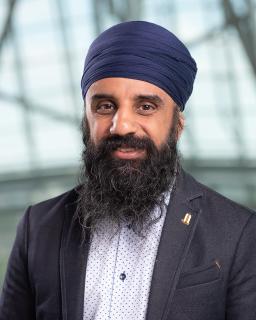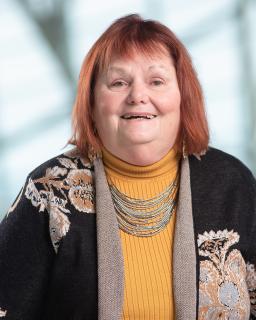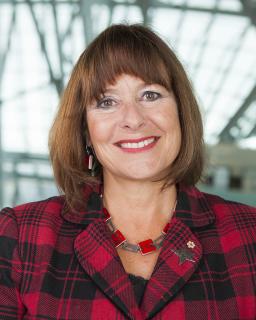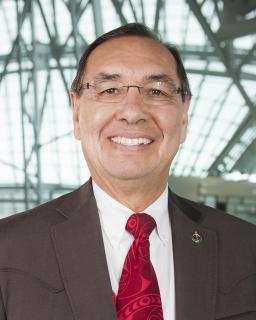Under the Museums Act, the Museum’s Board of Trustees serves as its governing body and is accountable to Parliament for the stewardship of the Museum through the Minister of Canadian Heritage. The Board is appointed by the Governor in Council.
Board of Trustees
- Chair
- J. Pauline Rafferty, Victoria, British Columbia
- Vice‐Chair
- Michèle Rivet, Montréal, Québec
- Trustees
- Viken Afarian, Lorraine, Québec
- Mark L. Berlin, Ottawa, Ontario
- Wilma Clarke, Vancouver, British Columbia
- Katherine Dudtschak, Toronto, Ontario
- Mark Ferrari, Burnaby, British Columbia
- Jocelyn W. Formsma, Ottawa, Ontario
- Pardeep Singh Nagra, Toronto, Ontario
- Benjamin Nycum, Halifax, Nova Scotia
- Yvonne Peters, Winnipeg, Manitoba
- Honorary Trustees
- Gail Asper, Winnipeg, Manitoba
- Wilton Littlechild, Maskwacis, Alberta
Chair
J. Pauline Rafferty
(she/her)
Pauline Rafferty is the former chief executive officer of the Royal British Columbia Museum (RBCM). Trained as an archaeologist, Pauline’s work first centred on archaeology, then on heritage interpretation. Throughout her career, Pauline held various high‐level positions in government, and was appointed assistant deputy minister at the Ministry of Women’s Equality in 1990. After retiring from the RBCM in March 2012, she has continued to be active on the boards of both national and provincial organizations. She serves on the board of the British Columbia Government House Foundation, and BC’s Provincial Health Services. She is a former board member of Simon Fraser University, Greater Victoria Chamber of Commerce, as well as former president of the Alliance of Natural History Museums of Canada. Pauline has also been honoured for her work in 2014 with a Honorary Doctor of Laws from the University of Victoria. In 2016, she was honoured with the Order of British Columbia and also received the Queen Elizabeth II, Diamond Jubilee Medal.
Vice-Chair
Michèle Rivet
(she/her)
Me Michèle Rivet is a member of the Barreau du Québec and an associate professor at the Université de Sherbrooke. She has been a member of the International Council of Museums Canada (ICOM Canada) Board of Directors since 2017 and Vice‐Chair of the Board of Trustees of the Canadian Museum for Human Rights since January 2019. She studied law at the Université de Montréal and the Université de Paris, where she obtained a master's degree in private law. She also holds a master's degree in museology from the Université de Montréal, which focused on First Nations and museum issues. Michèle Rivet was the first President of the Quebec Human Rights Tribunal, established in 1990, a position she held until 2010. She had previously been a Commissioner of the Law Reform Commission of Canada and a judge for the Youth Court. She was also Vice‐President of the International Commission of Jurists (ICJ) in Geneva from 2011 to 2017; she remains an honorary member. In 2005, Michèle received an honorary doctorate from the University of Ottawa for her involvement in human rights, both nationally and internationally. The Quebec Court awarded her a gold medal for her outstanding career in 2011, and in June 2015, the Barreau du Québec awarded her the title of Advocatus Emeritus. In December 2018, Her Excellency the Right Honourable Julie Payette, Governor General of Canada, appointed Michèle Rivet as a Member of the Order of Canada.
Trustees
Viken Afarian
(he/him)
Viken Afarian has extensive industry and community expertise gained through his professional career and numerous leadership roles in the community in Greater Montréal. As the Vice President of Lernapharm, a pharmaceutical company in the international antiseptic and medical device market, he contributed to steering the company towards growth. His problem‐solving skills have also allowed him to realize major political and cultural achievements for the Canadian‐Armenian community in Quebec and Canada.
Throughout his career, Viken has been an elected school commissioner (CSDM), as well as a board member for several educational and community institutions and industry associations. His extensive involvement and activism were rewarded when he received the Queen’s Jubilee Medal for services to the community in 2022. Born and raised in Lebanon, Viken moved to Canada in his late teens and became a McGill University alumnus in his quest for better opportunities. His unique reality has been his driving force, as he knows firsthand the crucial need for human rights awareness and education in Canada.
Mark L. Berlin
(he/him)
Mark Berlin is Professor of Practice at McGill University in Montreal where he teaches courses in international development. Mark was formerly Director General of International Legal Programmes at the Department of Justice, Senior General Counsel and Special Advisor to the Deputy Minister, as well as counsel and advisor to four former Ministers of Justice and Attorneys General of Canada, including serving as Special Advisor on the Middle East. As National Executive Director of Outreach for the Department of Justice, he lectured at every law school across the country. Throughout his public service career, he was Adjunct Professor of Law at the University of Ottawa in both the civil law and common law faculties, teaching in both official languages and writing extensively on human rights; he co‐authored the legal textbook Human Rights and Freedoms in Canada. A graduate of the Universities of Toronto (B.A.), Ottawa (LL.B) and Cambridge (M.Phil.), Mark is a former Board member of the Canadian Bar Association, the Ontario Bar Association and the Law Commission of Ontario. He was Chair of the Board of Reach Canada, an organization providing pro bono legal advice to members of the disability community. He also served as Vice‐Chair of the Children’s Aid Society of Ottawa‐Carleton and as Vice‐Chair of the Mayor’s committee on visible minorities.
Wilma Clarke
(she/her)
Wilma Clarke is a settler of colour residing in the unceded territories of the Kwikwetlem First Nation in Coquitlam, British Columbia. Her educational background includes a Bachelor of Arts degree in psychology and a Master of Arts degree in education.
As an employee within the provincial and municipal public service for almost 35 years, Wilma has extensive experience in senior and executive leadership roles, including the provision of strategic leadership and operational direction to both emerging and established program areas. Wilma’s professional experience spans the fields of social work, multiculturalism, anti‐racism, immigration, human rights, children’s rights, advocacy, equity, social policy and the professional regulation of teachers.
In addition to being a founding member and former president of the Unity Centre Association for Black Cultures, Wilma has volunteered with community organizations for many years, including working with a community‐based philanthropic foundation and a local transition house society.
Wilma was the 2012 recipient of the Rosemary Brown Award for Women for her contributions in the area of children’s rights, as well as the recipient of a City of Vancouver Leadership Award in 2022.
Katherine Dudtschak
(she/her)
Katherine (Katie) Dudtschak is an experienced business and thought leader in the areas of multi‐horizon growth strategies, transformational leadership, and inclusion. As former Executive Vice President, Regional Banking at RBC Royal Bank, Katie led the country’s largest advisor force with more than 20,000 employees, serving and advising more than 15 million clients. She is currently a Corporate Director, Consultant/Advisor, and Community Leader. Katie is a woman with gender‐affirming experience, publicly revealing her journey to embrace her true self in 2019. While facing her true gender was the hardest experience of her life, it provided her with a unique and powerful view on society and the role and practices of leadership moving forward. Known for her strategic mindset as well as her authentic care and candour, Katie uses her voice and experiences to carry the message of what it means to be a purpose‐driven and inclusive leader and organization. She has been invited to speak by organizations such as the Canadian Museum for Human Rights, McCarthy Tétrault, Deloitte and Columbia University, among others. She has been honoured as a 2022 Catalyst Champion – Role Model for Inclusive Leadership and Workplace Progress for Women as well as 2022 Woman of InspirationTM award recipient.
Mark Ferrari
(he/him)
Mark is a financial professional and proven leader with significant experience in managing large and dynamic organizations. He has demonstrated results in senior executive positions where he was responsible for finance and corporate services. Mark is a thought leader who has helped organizations realize optimal results and efficiency through transformative change. Mark has provided consulting services for several years to First Nations communities in support of their economic development. He works with stakeholders to develop business structures and strengthen community and corporate governance. His work with communities on investment strategies has led to improvements in community health and self‐autonomy. Mark is aware of the important role that human rights have played in his life. This has led him to work with many groups within his community to advocate on their behalf and advance their wellbeing. Mark is a graduate of Simon Fraser University and a Chartered Professional Accountant.
Jocelyn W. Formsma
(she/her)
Jocelyn Formsma is the Chief Executive Officer of the National Association of Friendship Centres (NAFC). Ms. Formsma is a member of the Moose Cree First Nation in Treaty #9 territory in Northern Ontario. She holds an Honours Bachelor of Social Sciences, a Juris Doctorate from the University of Ottawa and is called to the Bar of Ontario. Ms. Formsma has over 20 years of work and volunteer experience building strong relationships and advocacy with Indigenous peoples. She has worked in areas of social justice, media (radio and film), child welfare reform, youth engagement, and Indigenous children’s rights with and for numerous Indigenous and First Nations organizations. In addition, Ms. Formsma serves as a Board Member of the Indigenous Bar Association, is a founder of the Morningstar Fund, an advisor to the Ontario Indigenous Youth Partnership Project, and a Board of Trustee member of the Canadian Museum for Human Rights. She has served as a long‐time member and past Board Member of the National Indian Child Welfare Association, and past Board Member and Chairperson of the Aboriginal Peoples Television Network. As Chief Executive Officer of the NAFC, Ms. Formsma brings her legal training and passion for access to justice to her work with Indigenous peoples in urban environments and the Friendship Centre Movement towards innovative, positive and effective systemic change for Indigenous peoples.
Pardeep Singh Nagra
(he/him)
Professionally, Pardeep Singh Nagra is a speaker, teacher, trainer and consultant with substantial experience in organizational change. He specializes in employee engagement, inclusive workplace strategies, equity, and diversity work. He has held positions in university, college, public health, police and human services sectors, and currently works with the Toronto District School Board as Manager, Employment Equity. Personally, Pardeep’s interest in charitable, community spirit and humanitarian work has touched the lives of many people and communities over an extended period of time. His work and service has been recognized and valued as he was the recipient of the YMCA Canada Peace Medal, University of Toronto Arbor Award, Region of Peel Chair’s Award for community service, Auxiliary Constable of the Year with Peel Regional Police, and the Queen’s Diamond Jubilee Medal, to name a few. Some of his favourite charitable activities are the CN Tower stair climb and the Toronto Polar Bear Dip. In addition to being highlighted in various textbooks in Canada, Pardeep is featured as a question in the Trivial Pursuit board game. The Hollywood movie Tiger, released in October 2018, is based on the true story of Pardeep’s journey as a boxer.
Benjamin Nycum
(he/him)
Benjie is the CEO of Nycum + Associates, a Halifax‐based architecture and planning firm that specializes in complex public architecture and planning. Benjie is passionate about the intersections of human processes and group dynamics in the service of marginalized populations. Benjie is an adjunct professor at Dalhousie University Faculty of Architecture and an instructor at the Royal Architectural Institute of Canada Syllabus Program where he is also engaged as a subject matter expert for curriculum development. In 2000 he wrote and published the XY Survival Guide for LGBT teens and subsequently founded Young Gay America, which conducted road‐trip style interviews with 1500 lesbian, gay, bisexual and transgender youth in 47 states and 6 provinces. The project culminated in the creation of the full‐length documentary Jim in Bold, the YGA magazine and the Exuberance! exhibition which extensively toured Europe and North America. Benjie is currently a director at the Design and Construction Institute of Nova Scotia, the Canadian Gay and Lesbian Chamber of Commerce and the Halifax International Airport, and has served on the board of Egale Canada Human Rights Trust.
Yvonne Peters
(she/her)
Yvonne Peters is a human rights lawyer and, for 30 years, has vigorously advocated for systemic change and substantive equality for all historically marginalized people.
As Chair of the Human Rights Committee of the Council of Canadians with Disabilities, Yvonne played a key role in securing recognition for disability rights in the Canadian Charter of Rights and Freedoms. As legal counsel, she was involved in a number of equality test cases that established disability rights and women’s rights in Canada.
Yvonne has served on numerous local, national and international committees, including as Chairperson of the the Manitoba Accessibility Advisory Council and of the Manitoba Human Rights Commission. She is currently a member of the Human Rights Expert Panel of the Court Challenges Program.
In 2021, Yvonne joined the Museum’s Inclusive Design Advisory Council and is a passionate member of the National Coalition of Persons Who Use Guide and Service Dogs.
Yvonne lives in Winnipeg, where she is involved in many community activities, including as a member of the Board of Directors of the Sick + Twisted theatre group and other community music organizations.
Honorary Trustees
Honorary Trustees are selected by the Board of Trustees at the end of their term, to acknowledge their exemplary dedication and significant contributions to the Museum. Honorary Trustees have no voting rights or decision‐making authority as it relates to Board governance and activities.
Gail Asper
(she/her)
Gail Asper is President of The Asper Foundation, a private charitable foundation, which spearheaded the creation of the Canadian Museum for Human Rights. Previously she served as General Counsel and Corporate Secretary of CanWest Global Communications Corp. and was a member of the Board from 1992–2010. She graduated with an LLB from the University of Manitoba in 1984 and practiced corporate and commercial law in Halifax. Gail is a Governor of the Hebrew University of Jerusalem and a member of the Friends of the Canadian Museum for Human Rights Board, having served as the National Campaign Chair for the Museum’s private sector campaign. Gail has received numerous awards for her community service, including the 2005 Governor-General’s Ramon John Hnatyshyn Award for Voluntarism in the Performing Arts, the Order of Manitoba, the Order of Canada and several honorary doctorates. She has also received the Queen’s Golden and Diamond Jubilee Medal.
Wilton Littlechild
(he/him)
For more than 30 years, Dr. Wilton Littlechild has worked to build bridges between Aboriginal and non‐Aboriginal people through athletics, politics, and law. An accomplished lawyer, he is the first Indigenous person appointed to Queen's Council by the Alberta Law Society. He brought Native issues to public attention while serving as the first Treaty Indian Member of Parliament. Wilton has been active with a number of organizations both within Canada and abroad, including the Indigenous Parliament of the Americas, the United Nations, the National Indian Athletic Association, and the Canadian Council of International Law. He has given lectures on various occasions, including at the Human Rights Institute of the University of Hawaii. Wilton served as one of three Commissioners on the Truth and Reconciliation Commission of Canada, whose final report was release on December 15, 2015. For his participation in Aboriginal and athletic endeavours, he has been honoured with several awards, including the Lifetime Achievement Award as an Aboriginal Role Model and the Order of Canada and inducted into seven sports Halls of Fame. He graduated from the University of Alberta with a master’s degree in Physical Education, a Bachelor of Law Degree, and an Honorary Doctorate at Law. In December 2016, Wilton accepted his nomination as Grand Chief of the Confederacy of Treaty Six First Nations.


